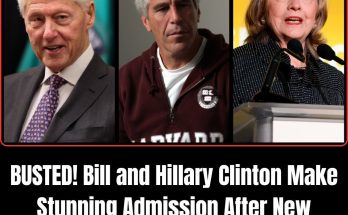The Department of Homeland Security (DHS) is firing back at California Gov. Gavin Newsom following controversial immigration raids on marijuana farms that uncovered unaccompanied migrant children working under potentially exploitative conditions. The clash has reignited debates about immigration enforcement, labor laws, and the responsibility of state versus federal authorities when it comes to protecting vulnerable minors.
The Viral Raid
The controversy began after Immigration and Customs Enforcement (ICE) agents raided a cannabis cultivation site in Ventura County, California. Video footage of the operation quickly spread online, showing federal agents moving through rows of marijuana plants and detaining several individuals suspected of working illegally.
But what caught the public’s attention even more was DHS’s revelation that eight unaccompanied migrant children were among those discovered at the site. According to officials, the children appeared to have been subjected to illegal labor practices and may have been trafficked into the operation.
“The Biden administration lost ~300,000 unaccompanied children—many of these innocent children were trafficked and exploited,” DHS wrote in a pointed post on X (formerly Twitter). “At the Ventura, California marijuana facility, ICE and CBP law enforcement rescued 8 unaccompanied migrant children from what looks like exploitation, violation of child labor laws and potentially human trafficking or smuggling.”
The department doubled down, adding: “Unaccompanied migrant children shouldn’t be forced into labor at California marijuana facilities.”
The post also included a historic sketch of a man speaking out at a town hall meeting—symbolizing what DHS framed as its duty to voice uncomfortable truths, even when politically unpopular.
Newsom’s Backlash
Gov. Gavin Newsom responded angrily to the raids, denouncing them as an unnecessary show of force that risked criminalizing farm laborers rather than targeting the larger criminal networks responsible for trafficking and exploitation. While his exact wording wasn’t released in full, his pushback emphasized California’s stance that federal immigration crackdowns often create more fear than safety in immigrant-heavy communities.
In a rare and unusually sharp response, DHS clapped back at Newsom directly on social media:
“Why are there children working at a marijuana facility, Gavin?”
The jab framed the issue as less about federal overreach and more about the state’s apparent failure to regulate its multi-billion-dollar cannabis industry, where unlicensed growers and labor abuses continue to be documented.
Trump Weighs In
Adding fuel to the fire, President Donald Trump weighed in while returning to Washington, D.C., from Texas, where he had been surveying flood damage. In a lengthy Truth Social post, Trump blasted critics of ICE and vowed that immigration agents would have his full backing.
“I am on my way back from Texas, and watched in disbelief as THUGS were violently attacking our brave ICE agents at a marijuana facility in California,” Trump wrote. “I have given federal immigration officers TOTAL authorization to defend themselves and protect this nation from the lawless chaos of illegal labor camps.”
Trump’s statement linked the raids not just to immigration enforcement but also to broader themes of law and order, portraying ICE officers as front-line defenders against organized crime, drug cartels, and human trafficking.
Child Labor in the Spotlight
Beyond the political sparring, the incident has thrust renewed attention on child labor practices in the United States. Advocacy groups have long warned that unaccompanied migrant children are at heightened risk of exploitation, particularly in industries with weak oversight such as agriculture, meatpacking, and now cannabis cultivation.
California, despite being one of the first states to legalize recreational marijuana, has faced ongoing challenges in cracking down on unlicensed growing operations. These sites, often hidden in rural or semi-urban areas, can involve unsafe working conditions, cash-only transactions, and an underground labor force that lacks legal protections.
Labor experts say the discovery of minors working at the Ventura site underscores systemic failures. “This isn’t just an immigration issue—it’s a child welfare issue,” said a labor rights advocate. “No child should be handling agricultural chemicals or working long hours in dangerous environments. The state and federal government must work together to ensure accountability.”
Political Divide Deepens
The clash between DHS and Gov. Newsom highlights a deeper divide between federal immigration enforcement priorities and California’s progressive stance on immigrant rights. Newsom has often positioned himself as a counterweight to federal crackdowns, emphasizing policies that shield undocumented immigrants and resist what he calls “fear-based policing.”
But critics argue that California’s approach has left gaps that bad actors exploit. “When states turn a blind eye to illegal labor, especially in high-demand industries like marijuana, they create opportunities for traffickers to profit off the most vulnerable,” said a former DHS official.
Supporters of Newsom, however, argue that federal agents are using isolated cases to justify broader, heavy-handed crackdowns that devastate immigrant communities and distract from larger systemic reforms.
What Comes Next
The immediate future may see both political and legal fallout. DHS has indicated it may expand its inspections and enforcement at cannabis facilities in California, especially where there are concerns about child labor or trafficking. Meanwhile, Newsom and state officials are likely to face mounting pressure to investigate how children ended up working at a licensed or unlicensed marijuana farm in the first place.
At the national level, Trump’s endorsement of aggressive enforcement is certain to intensify partisan debate ahead of the 2026 midterm elections. Republicans are already framing the incident as evidence of Democratic mismanagement, while Democrats counter that the focus should be on protecting workers, not criminalizing them.
For the rescued children, however, the political noise means little. Advocates are now calling for swift placement into safe housing, legal assistance, and trauma support. “We cannot allow these kids to fall through the cracks again,” one child welfare attorney said. “They’ve already been through exploitation once. They need protection, not politics.”
Conclusion
The Ventura cannabis raid has become more than just a law enforcement operation—it has evolved into a flashpoint in America’s ongoing battles over immigration, child welfare, labor rights, and the scope of federal authority. DHS’s sharp response to Gov. Newsom, coupled with Trump’s fiery backing of ICE, ensures the issue won’t fade quietly.
Whether this incident leads to meaningful reform or simply deepens partisan divides remains to be seen. But one thing is clear: the discovery of children working at a marijuana facility has forced both state and federal leaders to confront uncomfortable questions about who is truly responsible for protecting the most vulnerable.

